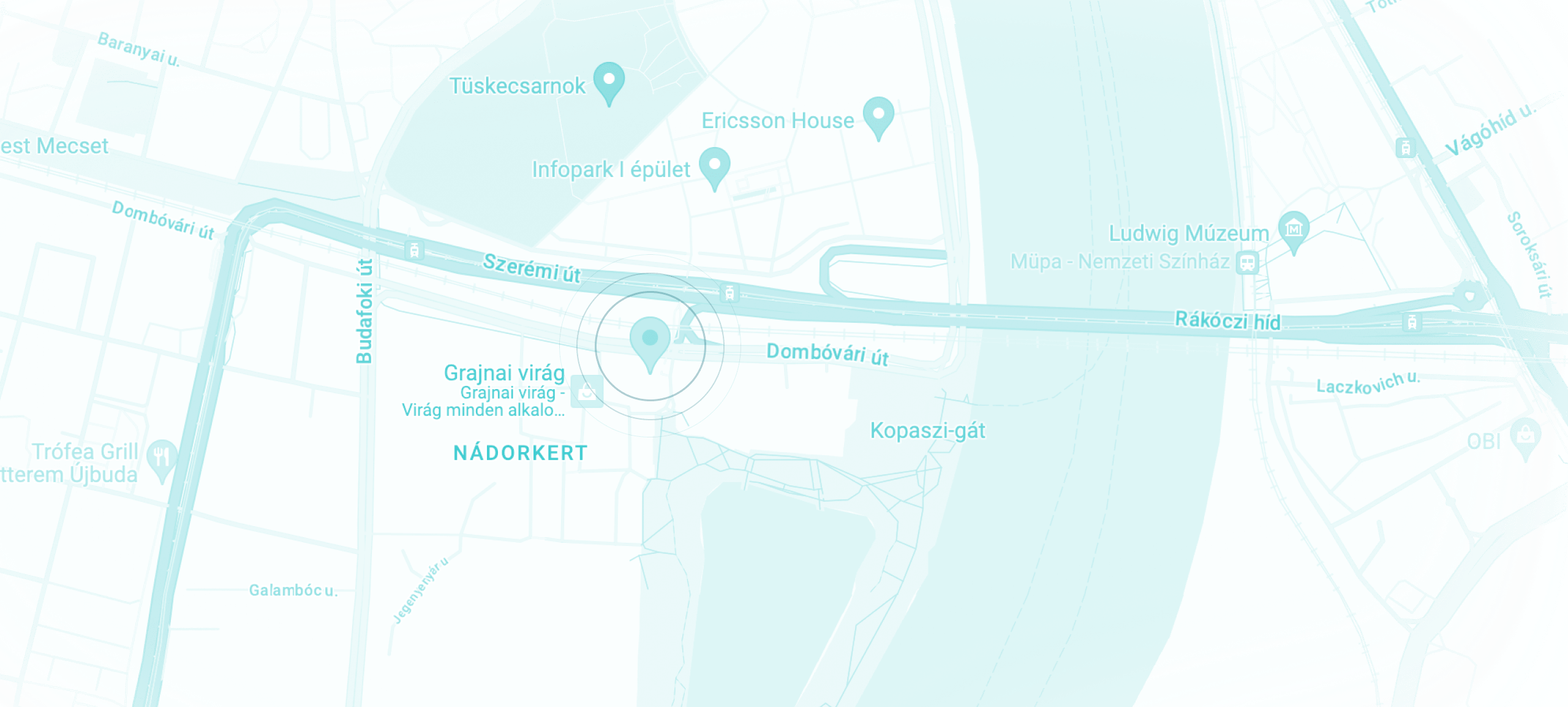
The most common scam types to watch out for
Don’t fall victim to scams! If you have a phone and an email address, you will certainly receive scam messages and calls where scammers will want to steal your money and your personal data. However, you can easily avoid most of these if you learn about the most common scam types and follow a few easy steps.
Don’t fall victim to scams! If you have a phone and an email address, you will certainly receive scam messages and calls where scammers will want to steal your money and your personal data. However, you can easily avoid most of these if you learn about the most common scam types and follow a few easy steps.
Opportunities for scammers
Scamming is a crime where scammers will create a situation where you will just give them what they want, whether it is your money or your personal information (which they can later use to take your money or commit crimes using your data). To achieve this, most scam types will focus on creating trust and urgency.
- Creating trust: scammers will often be impersonating someone, whether it is a bank, an authority, a utility provider, a benefactor, or a relative.
- Creating urgency: scammers will often depict a situation where you need to act without delay (and without thinking) if you want to avoid an unpleasant result of your inaction.
When these two things are present, even smart people can act rashly, so it is important you learn to recognize such situations. To help you with that, below we list some “tells” that will help you recognize the most common scam types and some best practices to avoid getting scammed.
What to watch out for
Whether you get a fraudulent phone call, text message, or email, the below tells should make you suspicious that something is not right.
- Channel: You do not usually receive messages from this sender on this channel. E.g. you would not expect to receive a text message from the police – they will send you regular mail.
- Language: You do not usually receive messages from this sender in this language. E.g. your supervisor does not normally write to you in Hungarian, or the Hungarian police will not write to you in Chinese.
- Sender’s email address: Make sure the message comes from the right address and the right domain, e.g. every email from Helpers will come from the @helpers.hu domain (which you can whitelist) and not from @wannascamyou.hu. Make sure the domain name is written correctly, without typos, and that e.g. @microsoft.com is not replaced by @rnicrosoft.com with an r and an n instead of an m.
- Buttons and hyperlinks: Before you click, you can check the URL where the link takes you by hovering your mouse over the button or hyperlink. Make sure that the URL is something you would rightly expect, without any typos, on the accurate domain, e.g. the website of the Immigration Office is at oif.gov.hu, not at oif.hu (with the “gov” missing) or oiff.hu (with an extra letter) or oif.eu (on the wrong domain). Scammers can even copy entire websites so the page you arrive at would look legit, but it can be used to steal your login data.
- Shortened link: Link shortening services can easily hide malicious URLs. Be wary of such shortened links, especially if they come from “authorities”.
- Too good to be true: If you get offered a deal that seems unreasonably good, there is a chance it is a scam. If you get a “newsletter” that takes you to a website of very heavily discounted goods, consider if those prices are realistic even at a discount. A fake online shop can be a trap for collecting personal data and credit card information.
- Nothing comes for free: If a scammer promises you a huge amount of money and you don’t have to do anything, “just” something small, like submitting your data, or making a small transfer to them to “verify your data”, that is a scam.
Best practices
If you are not sure whether the message you received is real or a scam, the best thing you can do will be to ignore the instructions and try to validate the content of the message from an alternative source.
- If it is an email, call the sender on phone. If you don’t know their phone number, do not just make an internet search (because scammers can build convincing copycat websites that can fool even search engines), but find the last legitimate communication, e.g. the last letter you received from the Immigration Office.
- Set up 2-factor authentication for as many services as possible. This way, even if your login data gets stolen, scammers will not be able to access your other data.
- For online payments, use a dedicated online bank card that has limited funds. This way, even if your bank card data get stolen, there will not be much on the card to steal. (However, if you report a transaction as fraudulent, the bank will probably return your money.)
- Do not use the same password for different services. This way even if one of your passwords get stolen, it cannot be used to access other services.
Once you recognize scam, the actual best practice will be to ignore the message altogether. You might also want to block or blacklist the sender, or report the message as spam or fraudulent.
Examples of various scam types
| Scam: Phone calls targeting Chinese nationals in Hungary: An automated voice calling from a Hungarian phone number, speaking in Chinese, pretending to be from the Chinese embassy, suggesting that there is a problem with the residence permit of the person called, asking them to press number 9 on their phone. This way the scammer can identify phone numbers that belong to Chinese people in Hungary, and they can use this information later. Tell: Authorities will rarely contact you on the phone, they will send regular mail or email (Hungarian authorities will send a message through Ügyfélkapu). If they do call, it will be a person, not a recorded message. Best practice: Just hang up the call. If the message got you worried, find the phone number of the organization and call them yourself. |
| Scam: Work email from a manager, urging you to make a transfer on behalf of the company, or do something that is not exactly your job. Tell: What they ask for is technically not your job. Your company probably has workflows and a chain of command in place for such situations, and those should not be disregarded, especially by a manager. Best practice: Follow procedure. Ask your supervisor, or contact the manager through a verified channel. |
| Scam: Work email from a colleague, sending you a file to download. Even PDF files can contain malware that could hurt your computer or your business. Tell: Consider if it is normal to receive that type of message and that type of file from that colleague, in that language, from that email address. Best practice: If the message and the email address both look right but you are still suspicious, ask your colleague on another channel about the message, e.g. on phone or on your intranet. |
| Scam: Automated email from SharePoint or another online storage place your workplace uses. You will need to log in to see the file, but the link will take you to a fake login page. If you enter your username and password here, “nothing happens”, as you will not be able to log in; however, scammers might gain access to confidential information managed by your company. Tell: Consider if it is normal to receive that type of message and that type of file, in that language, from that email address. Best practice: If the message and the email address both look right but you are still suspicious, ask your colleague on another channel about the message, e.g. on phone or on your intranet. It is also important to set up 2FA for as many services as possible, so even if your login data get stolen, scammers will not be able to access additional information. |
| Scam: Email from a utility provider, stating that you have an overdue bill you need to pay urgently to avoid a penalty, and they helpfully provide a payment link for quick online payment. The sum is typically small, around HUF 2,000 (or EUR 5), but the dedicated payment page is designed to steal your bank card data so the scammers can later spend whatever is on your card. Tell: Consider if you are actually a client of this specific provider. If yes, consider if you have already paid all your bills, or if the sum on the “overdue” bill makes sense. Best practice: If you are a client of this provider, you will probably have access to their online customer service. Log in there, and see if you have anything overdue. |
| Scam: Text message from the Hungarian police or the Immigration Office about an outstanding fee or a missing document that could pose a risk to your Hungarian residency status. Tell: Neither the police nor OIF will normally send text messages, especially not with shortened links to click. Best practice: Ignore the message. If it got you worried, ask your employer, as employers are usually involved in the work permit procedures of employees. You can also contact the police or OIF through verified channels. |
| Scam: Undelivered package. This can be either an email or a text message stating that you have an undelivered package which will be returned to the sender if you don’t act quickly. Then it will contain a link either to track the shipment or pay to customs duty. Tell: Consider if you are expecting a package. If you are, you probably have a tracking number for it already – then see if the one provided in the message matches anything in your inbox. The tracking numbers of international packages coming through Hungarian Post tend to stop working when they reach Hungary, and emails from Hungarian Post do tend to look fraudulent, so make sure you check the sender’s email address and any hyperlink you are supposed to click. Best practice: Keep track of what packages you are expecting. |
| Scam: Relative with a new phone number: A relative or a close friend will send you a text message saying they have a new phone number, and they will ask for money because they are short on cash. Tell: Consider if this is how this person normally communicates with you: examine the language (would they contact you in English/Hungarian), the way they write (turns of phrase), the channel (would they normally send a text). Best practice: Try to contact them on a different channel. If they sent a text message, try to call them on their “old” phone number, send an email or a DM on an app you usually use, or contact a close friend or a relative of theirs. |
| Scam: You won the lottery, or inherited big money from a distant relative, or a philanthropist wants to help you out, or a billionaire wants to send money to an organization in the country where you live and you can get a commission if you act as an intermediary (this latter is money laundering, by the way, and it is a crime). At one point, you will be asked to share your credit card info or to make a small transfer to them so they can “verify” your data. In fact, they will be stealing your data or your money. Tell: As the Hungarian saying goes, “There is no free lunch” (“Nincs ingyenebéd”). If you are promised anything for free, be wary and consider how the offer could make sense for the supposed benefactor. Best practice: Ignore it. |
Knowledge is power
Knowing these common scam types lets you avoid them and stay safe. Watch out for the most common tells and be wary of offers that sound too good to be true. Check for authenticity whenever you can: watch out for language, typos, or unfamiliar procedures, and verify information through independent channels. By keeping these simple practices in mind, you can easily reduce the risk of getting scammed.
Data security at Helpers
We at Helpers take data security very seriously. We prefer email communication because that is traceable, and we usually call clients only if they should expect it. Instead of asking for personal documents in email, we usually ask our clients to upload documents in safe online storage, e.g. in SharePoint. If you are not sure whether an email we sent is real, you can always call your dedicated account manager on their mobile phone or our office on +36.1.317.8570.
Helpers has 20+ years of experience and committed team of 25+ professionals, dedicated to make your plans a reality in Hungary. Whether you need assistance with business setup or residency application, we are here to help. Reach out to us anytime and tell us how we can be of service.
Was this article useful? Then follow us on Facebook to never miss an update, or sign up for our monthly newsletter to learn about the most important developments in Hungary.
التواصل
تواصل معنا اليوم
من الإثنين إلى الجمعة
9 صباحًا - 5 مساءً بتوقيت وسط أوروبا
Helpers Hungary Kft
Budapart Gate
Dombóvári út 27
Budapest 1117, Hungary
إذا كنت تزورنا، يرجى استخدام المدخل A والتوجه إلى الطابق الثاني.






